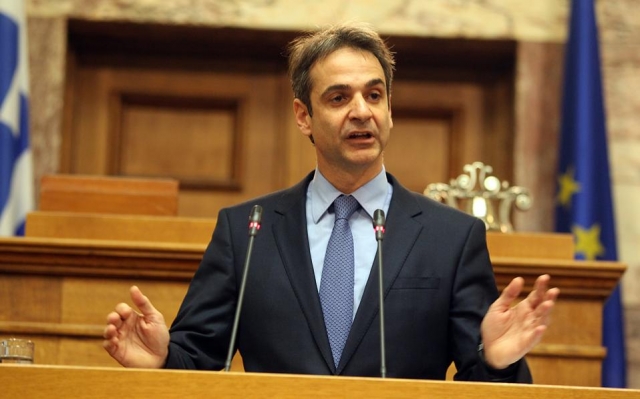photos www.kathimerini.gr
The election of Kyriakos Mitsotakis as leader of New Democracy gave an impetus to the largest opposition party and triggered strong currents that will most likely lead to an overhaul of the Greek political system. For its part, the government is putting up a bulwark and was quick to initiate changes in the current electoral law.
Prime Minister Alexis Tsipras, as well as the staffs of Kyriakos Mitsotakis, PASOK's Fofi Gennimata and Potami's Stavros Theodorakis are awaiting the next polls to reflect the first ripples after the change of New Democracy's leadership. But a few specific effects have already become visible:
Firstly, the scenarios, which have made the rounds in recent weeks – for the formation of a national unity government, or of one supported by New Democracy, if the current government is forced to resign – went up in smoke. Mitsotakis made it clear that he has 'no mandate to support Tsipras'. The prime minister saw this coming and hastened to attack Mitsotakis first.

Secondly, a new polarization is already visible. PASOK, Potami and the Union of centrists are under heightened pressure, while SYRIZA and New Democracy are vying in the centre. Furthermore, the election results in New Democracy, and the unperturbed harmony between the Adonis Georgiadis' camp and Mitsotakis have essentially nipped the possibility of establishing a new right wing party in the bud. But while Mitsotakis has eased himself in the centre of the political spectrum on the back of the profile he created for himself in recent years, things would be a lot harder for Tsipras. On the one hand, the pension reform, just like the other financial measures and the overall implementation of the third memorandum, are mainly hurting the middle class. On the other hand, in his efforts to keep his parliamentary group happy, Tsipras has been following a left wing tack on issues such as investment and education.
Thirdly, PASOK and Potami are at a crucial junction in their development. The expulsion of Leonidas Grigorakos from the parliamentary group of the Democratic Coalition, as well as the allegations of some Potami MPs that both their party and Stavros Theodorakis himself are in need of a clear-cut political face, show that the in-house bickering has already started in the smaller parties, exacerbated by the victory of Kyriakos Mitsotakis. The expectation is that if the polls next week show that either of these two parties is in peril of being crowded out of parliament at the next elections, the unrest in its parliamentary group will grow even stronger. Moreover, although it is still early days for this kind of discussion, the scenario for the creation of a European front around New Democracy as the key pillar is again on the table. Some politicians do not exclude the possibility of Tsipras revamping his government coalition strategy, which currently excludes PASOK and Potami.
The government proposal for a new electoral law will be of crucial importance for further political developments in the country. Tsipras committed himself to this bill at the last meeting of political leaders with President Prokopis Pavlopoulos. Reportedly, the prime minister is likely to accelerate the initiative for amending the electoral system. The most likely scenario, based on the proposals of Interior Minister Panagiotis Kouroublis, provides for a reduction of the bonus for the winning party from 50 to 20-25 seats in parliament and divvying up the largest constituencies. If this happens, the latter will only have 6 MPs each. The 3% barrier to enter parliament will be sustained. But there have been indications, especially now, after Kyriakos Mitsotakis' appointment, that the possibility of reducing the threshold of 3% to 2% are being deliberated in favour of smaller parties. However, if it were to get through Parliament and become of force before the next elections, the bill needs 200 parliamentary votes, i.e. it must be embraced not only by PASOK, the Union of centrists and Potami, but also by New Democracy or at least the Communist Party.
The big question is how the government parties will conduct themselves in the aftermath of Mitsotakis' election. The pressure on the government to implement reforms – coming from the EU institutions – will grow. In parallel, some of the prime minister's associates have confessed New Democracy might be approached to stand behind painful measures in parliament, like the pension reform.